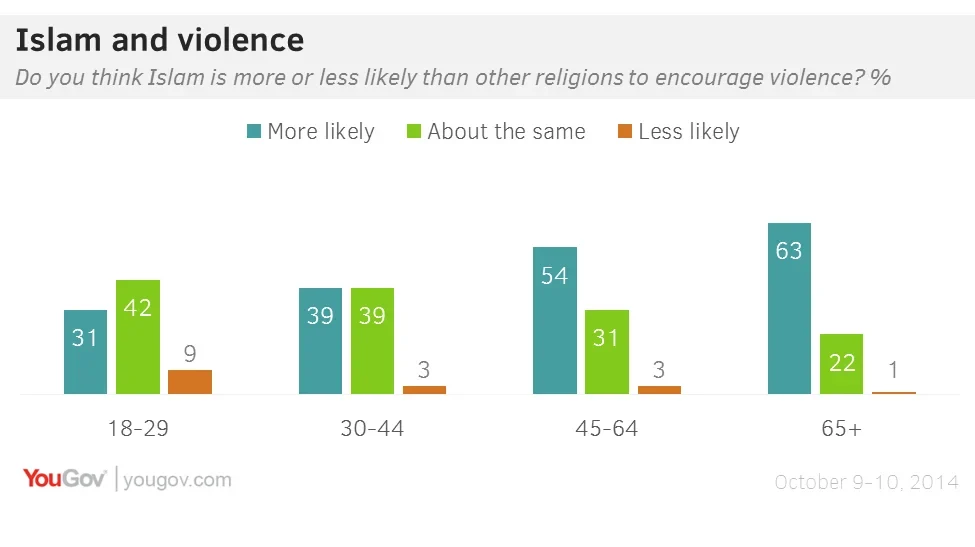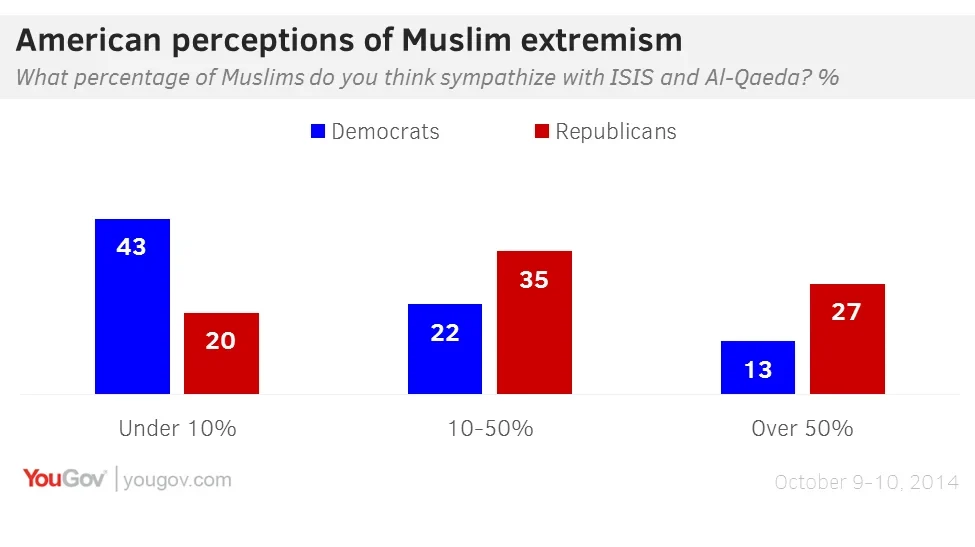Nearly half of Americans think that Islam is a more violent religion than others, but younger people feel much less negatively about the religion
When Ben Affleck appeared on Bill Maher's Real Time last week, an argument about Islam and Muslims dominated the show. Maher and famous atheist Sam Harris clashed with Affleck over whether or not fundamentalist and extremist Islamist groups such as ISIS or Al-Qaeda are merely fringe elements in the Muslim world or if they are firmly in the mainstream. This question is illustrated starkly by events in Iraq and Syria, as a number of Muslim countries, including Jordan and the UAE, join the US in bombing ISIS whose militants are often recruited from Muslim communities outside of Iraq and Syria.
YouGov's latest research shows that 47% of Americans think that Islam is more likely than other religions to encourage violence, while 34% say that Islam is about as likely as other religions to be violent. Older Americans are also far more likely than younger Americans to see Islam as violent. 63% of over-65s say that Islam is more likely than other religions to encourage violence, compared to only 31% of under-30s. People ageed 30-44 are evenly split on the issue, while most (54%) people aged 45-64 tend to see Islam as violent. Republicans (69%) are more than twice as likely as Democrats (32%) to say that Islam is more encouraging of violence than other religions.

Most Americans (59%) have an unfavorable opinion of Islam, while only 18% say that they have a favorable view of the religion. Republicans (74%) have the most unfavorable view of Islam, while under-30s (32%) have the highest favorable attitudes towards Islam.
Perceptions vary greatly as to how many Muslims sympathize with ISIS and Al Qaeda. 19% of Americans believe that most Muslims sympathize with the two extremist groups, while at the opposite end of the spectrum 31% believe that less than 10% of Muslims support ISIS and Al-Qaeda. 27% say that between 10% and 50% of Muslims around the world back the two groups. Democrats are much less likely to say that significant numbers of Muslims support the two groups, with 43% of Democrats estimating that the percentage of Muslims that support ISIS and Al-Qaeda is under 10%, something only 20% of Republicans agree with.

A 2014 study from Pew on the attitudes of Muslims around the world shows that support for extremist tactics varies greatly from country to country. 46% of Muslims in the Palestinian Territories think that suicide bombings on civilians in defense of Islam are 'sometimes' or 'often' necessary, compared to only 3% of Muslims in Pakistan and 5% in Tunisia.
Full poll results can be found here.









